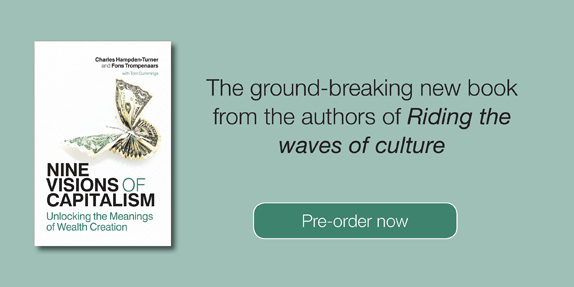Was Steve Jobs a conscious capitalist?
30 September 2015 by Catherine Holdsworth in Business and finance, Entertainment, Nine visions of capitalism
Unless you’ve been hiding under a rock for the past few months, then you may have heard about a new film coming out this Christmas about the late Apple CEO, Steve Jobs, entitled, Steve Jobs. With the star Michael Fassbender already tipped for Oscar success, the film has been plagued with scandal since before it was even put into production. Though Fassbender may have done a good job, after the Sony hack, it was revealed that writer Aaron Sorkin didn’t even know who he was. How opinions can change.
Two trailers have been released so far for the film and, if they’re anything to go by, it doesn’t look like Jobs was the type of person you’d want to invite round for a cup of tea. So focused on his job was he, that he neglected his daughter in pursuit of building up his company into an empire. That he did. There are Apple products all around you, all you have to do is step out of your door and you’ll see someone on an iPhone, chatting, texting or instagramming their lives. Apple is more than a technology company, it is a lifestyle for millions of people. Every time a new model of iPhone is released, there are people who are selling their grandmother to be the first in line to get their hands on the new model. We all remember that rather odd woman who had queued in New York for a new iPhone, just because she thought she should, and had no idea why she really wanted it. Apple has saturated the market so much that, though Microsoft and Bill Gates’ empire is still incredibly successful, even those who own a PC are aware of how good Apple is. To collect them all, as Pokemon fans would say, is to shell out thousands of pounds, and then more to update your collection. When does it end? And should I be ashamed of my 2009 iPod nano that is hiding in a drawer at my parents’ house?
That iconic combination of jeans and polo neck has cemented Jobs as an easily-recognisable figure and the face of Apple. There’s no doubt that Jobs achieved extraordinary things with Apple, but is the company promoting conscious capitalism? Charles Hampden-Turner and Fons Trompenaars, authors of Nine visions of capitalism, suggest that Jobs and the Apple corporation were winners with their very first product:
The computers produced by Acorn and the BBC Micro ‘failed’ to match the appeal of the Apple I. In reality there were a number of contributing factors: the USA has a much larger and more demanding market; California legislators approved a free Apple for every public school, provided that school purchased a second; a new mass market was created that shut imports out; and Apple was pitched in terms of personal liberation from IBM, the rebellion of a defiant citizenry against a corporatist ethos.
So Apple asserted that it was a cool company from the start. We all remember those really fun Apple Macs that were brightly coloured, they were not designed to appeal to Wall Street stockists, they were for the young, hip students and start-ups. They epitomise the rise of Silicon Valley: exciting, fresh and completely different to the stuffy companies that make you work ridiculous hours and resent your job. Yet Apple too makes you work ridiculous hours, by providing free food, gyms and making the office a welcoming environment, employees don’t want to go home. Essentially, they are in it for life (or at least as long as they work there). The opportunity for Netflix and chill is sadly lacking. Last October, Apple HR demonstrated it’s conscious capitalism by unveiling its philanthropy programme, and it would match any donation to causes that its employees made.

In an age where most all of us in the Western world own a laptop, smart phone and most likely an Apply product or two, these companies are literally part of millions of people’s lives. Capitalism affects us on a global scale and Apple’s stocks just keep growing. New technologies are being developed and to stay current, you have to stay ahead of the competition. But to appeal to the masses and to remain in our pockets, you have to be conscious of what the consumer wants. Earlier in the year, when Taylor Swift called Apple out on their policy of not paying artists for the first three months of Apple Music, Apple responded, ‘we hear you, Taylor Swift’ in an attempt to appeal human, they came out smelling of roses when they could easily have ran into a PR blunder. By looking like they care about what Swift and other artists had to say, they showed their conscious capitalist ethics.
Whether you believe that Jobs was a conscious capitalist or not, he managed to create a company that has changed millions of lives and made his mark on the twenty-first century. I’m not sure whether the film is supposed to make Jobs look like a complete tool when it comes to his personal life, but perhaps it is showing us that, for Jobs, the company came first, and as a consumer, that makes me feel a lot better!

